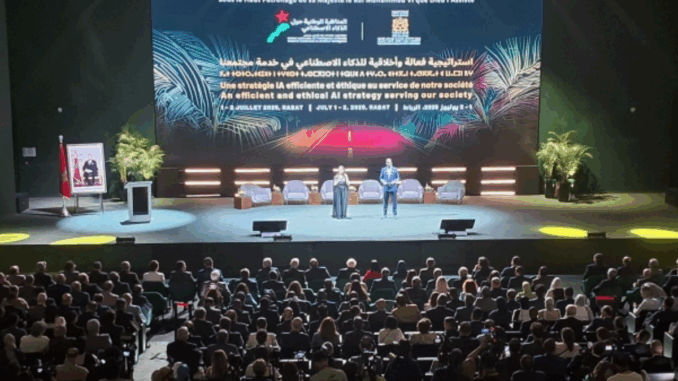
Morocco’s Deputy Minister for Digital Transition and Administrative Reform, Amal Seghrouchni, outlined plans for comprehensive artificial intelligence legislation during the inaugural National AI Conference held July 1-2 in Rabat.
Seghrouchni described the gathering as a “national momentum” designed to establish a roadmap for developing artificial intelligence “of Morocco, in Morocco, by Moroccans.”
The minister emphasized AI’s role as a cross-cutting lever amid rapid technological transformation, highlighting the need for adapted infrastructure, training, applications, and regulations. Morocco must invest in AI-related infrastructure including supercomputers and data centers, which will become technical and geopolitical nodes of digital transition.
Central to Morocco’s approach is developing trustworthy AI systems with guaranteed transparency. “We must arm ourselves with good practices and implement necessary regulations and jurisdictions to benefit from and support this development,” Seghrouchni stated. The minister is currently working on dedicated legislation with state agencies including the National Data Protection Commission and the Digital Development Agency.
The legislative framework addresses several imperatives: justifiability of algorithmic decisions, right to explanation, personal data processing control, and protocol sovereignty. “Artificial intelligence can make decision proposals, but these decisions must be argued and explained,” Seghrouchni noted, emphasizing the importance of understanding why systems make specific recommendations.
The minister plans to present the legislation during the parliamentary session, balancing technological openness with legal sovereignty and social acceptance. The AI roadmap aims to maintain alignment with institutional balances and fundamental rights while fostering innovation through shared responsibility rather than restricting development.
